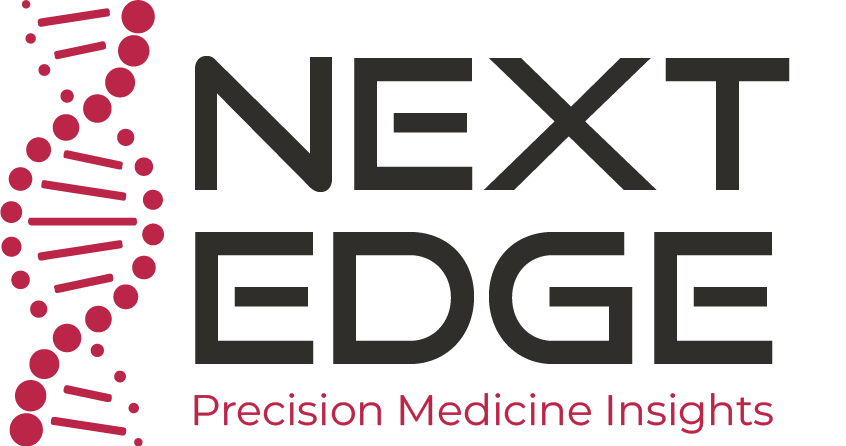August 7, 2020
By Next Year, Will Doctors Finally Have The Technology To Fully Personalize Treatments For Lung Cancer Patients?

Original source here
Today, with the new risks posed by Covid, how do we provide the best care for people with non-Covid- related disease? For diagnosed cancer patients, these risks may warrant a re-evaluation of the common standards of treatment.
"Covid has had a very negative impact, as cancer screening is down by about 50%," says Oncologist Dr. Adam Dicker, Director at the Jefferson Center for Digital Health. “Most predictions suggest that a larger number of patients will present with a more advanced stage of disease because of the decrease in screening and fear of Covid. It seems like the end result will be more patients with advanced disease and lower cure rates because their cancers were diagnosed at a much later stage.”
Even more worrisome, and while targeted cancer therapies are now more tumor-specific, less toxic, and offer new possibilities for tailoring cancer treatment, there are still so many missing pieces: often as not, oncologists are shooting in the dark, trying to tailor the right treatment for their patient with very limited data. With the shadow of Covid, and the multiple risks cancer patients now face, clinicians are increasingly concerned.
“Today, we use protocols to treat our patients with lung or other kinds of cancers,” says Dr. Ofer Sharon, a longtime physician and entrepreneur. “There are very few good biomarkers that enable personalized treatment regimens and therefore, in most cases, we have a ‘one size fits all approach’. Treatment starts following diagnosis and staging and we start to follow up on patients using clinical capabilities.”
What he describes is rather disturbing. Doctors are left to speculate as to which degree patients are responding to treatment. "Oncology is at the beginning of the journey in terms of precision medicine," Dr. Dicker explains. "We currently have a few classes of drugs that care for patients with specific mutations in their tumor DNA or a percentage of immune cells that stain for a particular protein. We currently do not have a comprehensive approach that integrates all the available information to enhance clinical decisions."
Dr. Sharon adds: “Usually, response assessment happens after three and six months. During this period, there are a lot of uncertainties, and sometimes there are adverse events and associated costs. If the patient is not responding the way we had hoped, we lose valuable time. There is a consensus among clinicians,” he notes, “that not all patients are the same and there’s a dire need for effective tools to differentiate between patients and personalize treatment according to their needs. There’s a dire need for effective tools to differentiate between patients and personalize treatment according to their needs. Will technology make a difference?
OncoHost, an Israeli precision oncology company is now in the final steps of finalizing a host response profiling platform for predicting patient response to cancer therapeutics.
With over 20 years of experience in clinical and commercial product development for startups in the health tech, biotech, and medical device industries, Dr. Sharon decided to join OncoHost, as its CEO, following a personal tragedy. “Seven years ago my father-in-law was diagnosed with advanced-stage melanoma. At the time, I was the medical director for Merck (MSD) and involved in the phase 3 trials of Keytruda, a drug that treats melanoma. Unfortunately, my father-in-law didn’t meet the inclusion criteria for the trial and passed away three months before we launched the new drug. The frustration, which arises from the fact that in most cases we just don’t know in time which patients will benefit from treatment and which will not, kept me awake for many nights.”
When he came across Oncohost, he realized there might be hope for others. ”I was fascinated by the concept and science. The opportunity to make such a crucial difference in the way we treat cancer was something I just couldn’t pass up, and I decided to take on this huge challenge.
The company’s technology is based on high-throughput protein analysis, machine-learning algorithms, and bioinformatics tools. Its product, PROphetTM, is currently under study in a multi-center international clinical trial to predict patient response to immune-checkpoint inhibitors for non-small cell lung cancer and melanoma.
So far, it has successfully identified a 10-protein signature that distinguishes between responders and non-responders to anti-PD-1 monotherapy or anti-PD-1 and anti-CTLA-4 combination therapy for melanoma. The technology should elucidate protein patterns associated with resistance to immune checkpoint inhibitors and will fulfill the need for differentiating responders from non-responders while monitoring the immune checkpoint inhibitor specific protein expression scores such as tumor proportion score.
Dr. Dicker views this innovation as the future of precision medicine. " From a holistic perspective, precision medicine should take into account the patient’s germline DNA, the tumor DNA and the host ecosystem (immune system, microbiome, etc.), imaging, social determinants of health and goals. The outcome of precision medicine should be an evidence-based, tailored approach to each patient that maximizes clinical outcomes and minimizes toxicity. "
The system, now in the clinical trial stage, analyzes the patient’s response and provides the patient and physician with a response prediction. In cases where no response is predicted, it suggests potential combination strategies and alternative treatments that may mitigate treatment resistance. "We hope this platform will — like a CT or MRI — add much-needed clinical information to support the complex and in many cases, life-and-death decision-making process".
The technology for assessing response to lung cancer therapy is expected to become available in the U.S. by next year.





